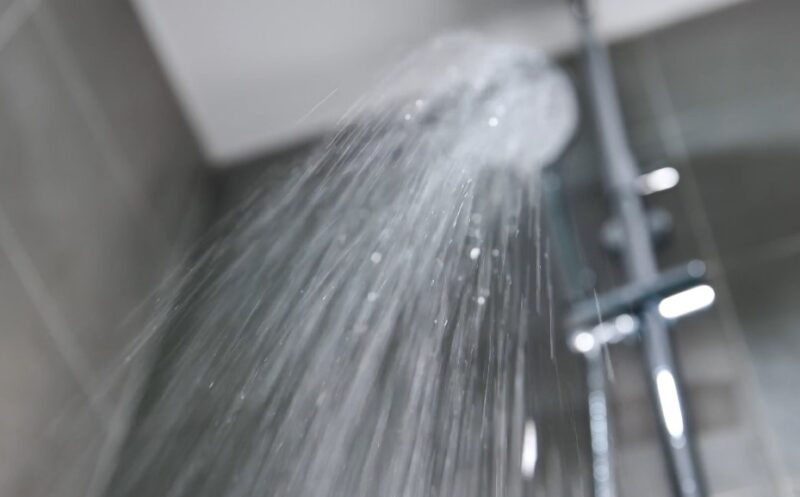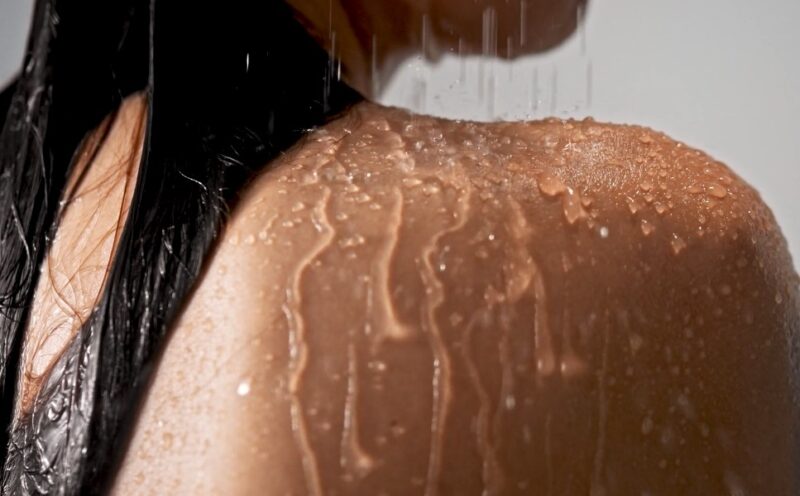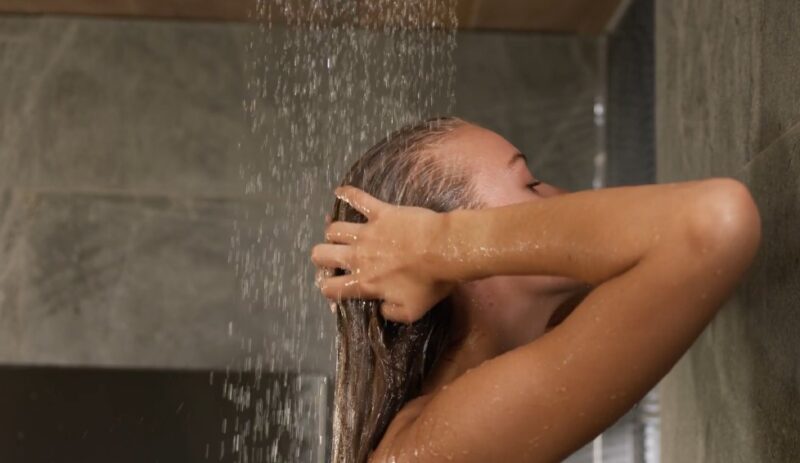Showering is one of those daily routines we don’t think much about. We step in, wash off, and go on with our day. But have you ever considered how long you spend in the shower?
While it might seem like a minor detail, your shower time can actually have a surprisingly big impact on everything from your wallet to the planet.
Let’s talk about why the average shower time matters more than you might expect.
Water Conservation

Did you know the average shower lasts about eight minutes and uses 16 gallons of water? It may not sound like much, but across the U.S., this adds up to over 1 trillion gallons of water annually—just from showering.
When you think about it, that’s a lot of water going down the drain for something we often take for granted. Reducing your shower time by even a minute or two might not feel like much, but collectively, it makes a big difference.
In regions dealing with water shortages, cutting back on shower time is one of the simplest ways to contribute to conservation efforts. Freshwater resources are becoming more and more strained by factors like population growth and climate change.
With water scarcity becoming a growing global issue, shaving off a couple of minutes in the shower is an easy way for anyone to help out.
The Ripple Effect of Shorter Showers
- Less water consumption: Helps preserve vital freshwater resources.
- Reduced demand on water infrastructure: Decreases the pressure on water treatment and delivery systems.
- Easier on local ecosystems: Less water is diverted from rivers, lakes, and reservoirs.
Energy Use and Your Carbon Footprint

Water isn’t the only thing flowing when you take a shower. There’s a lot of energy involved too—mainly in heating that water. In fact, heating water accounts for about 18% of the average American household’s energy bill.
By cutting your shower time, you’ll use less hot water, which means less energy is needed to heat it. This has a direct effect on your carbon footprint. Most water heaters run on electricity, gas, or oil—all of which contribute to greenhouse gas emissions.
So, by spending less time in the shower, you’re not only saving water but also reducing the amount of energy needed to heat that water. It’s a win-win for both your budget and the environment.
Why a Shorter Shower Lowers Emissions
- Less energy needed to heat water: Directly translates to lower utility bills.
- Reduced carbon emissions: Heating water often involves burning fossil fuels, so less heating means fewer emissions.
- Cumulative impact: Millions of people cutting their shower time could make a serious dent in overall emissions.
Financial Savings Are a Surprising Benefit

If saving the environment isn’t enough to convince you, maybe saving some cash will. By reducing your shower time, you’re not only saving on water but also on your energy bill.
The EPA estimates that a family of four could save around $100 per year just by shortening their showers. Water prices are going up in many places due to scarcity, and energy costs are no different.
Shorter showers mean smaller utility bills, and while a couple of minutes here and there might seem insignificant, those savings add up over time.
How Much Could You Save?
- Cutting 2 minutes off your daily shower could save around 1,200 gallons of water annually.
- Installing a water-saving showerhead reduces water flow and can further cut your bills without sacrificing comfort.
Better Skin Health

As much as we all love a long, hot shower, dermatologists say they aren’t doing your skin any favors. In fact, extended exposure to hot water can strip your skin of natural oils, leaving it dry, irritated, or even itchy.
Skin conditions like eczema can get worse with long, steamy showers. Experts generally recommend keeping your shower to about 5-10 minutes and using lukewarm water instead of hot.
It might not feel as luxurious, but your skin will thank you for it. So if you’ve ever wondered why your skin feels a little too dry after your shower, it could be that you’re spending too much time under hot water.
Tips for Skin-Friendly Showers
- Use warm, not hot water to avoid drying out your skin.
- Limit showers to 5-10 minutes for healthier skin.
- Moisturize right after stepping out to lock in hydration.
The Global Picture

Showering habits vary wildly depending on where you are in the world. In the U.S., most people shower nearly six times a week, with each shower lasting about 8 to 15 minutes. But in other parts of the world, showering habits look quite different.
For instance, many Europeans and Asians tend to shower less frequently and for shorter periods of time. In places like Australia and Africa, where water scarcity is a much bigger issue, shorter showers aren’t just encouraged—they’re necessary.
Governments even run campaigns to raise awareness and promote water-saving habits, and in some cases, issue fines for excessive water use. Showering in those regions isn’t just about hygiene, but also about doing your part to conserve a precious resource.
Why Do We Take Long Showers?
Showering can be more than just about getting clean—it’s often a moment of peace, relaxation, and even a way to collect your thoughts. Some people love the sensory experience of a hot shower, using it to unwind after a long day or wake up in the morning.
While there’s nothing wrong with enjoying a bit of “me time,” it’s worth questioning if those extra few minutes are really necessary. You can still enjoy the refreshing feeling of a shower without wasting water or energy.
It’s all about being mindful of how long you spend under the water, while finding other ways to relax outside of the bathroom.
Water-Saving Technologies

If you’re worried that cutting down your shower time means sacrificing comfort, don’t be. There are plenty of new technologies designed to help you use less water without feeling like you are.
Water-Saving Solutions
- Low-flow showerheads: These reduce the amount of water flowing through without affecting water pressure.
- Shower timers: Simple devices or apps that let you track your shower time and stay within your target limit.
- Automatic shut-off valves: Some modern shower systems will turn off after a certain time or reduce the flow to nudge you out of the shower.
By using these tools, you can make a big difference without sacrificing the experience of a refreshing shower. Also, you should consider smart water meter in your house.
A Small Change with Big Rewards
It’s easy to overlook something as simple as shower time. After all, it’s just a few minutes out of your day, right? But when you consider the environmental, financial, and personal health benefits of shortening your shower, it becomes clear that it’s more important than we realize.
Taking shorter showers may feel like a small change, but when millions of people make that choice, the impact is huge. We can conserve water, reduce energy use, lower our bills, and even improve our skin health—all by being mindful of how long we spend in the shower.
So the next time you step in, maybe aim for a quick five minutes and see how good it feels to know you’re doing something positive for yourself and the world.

